Small steps to giant leaps: First-gen students, faculty and staff find success in Purdue HHS
Written By: Rebecca Hoffa, rhoffa@purdue.edu
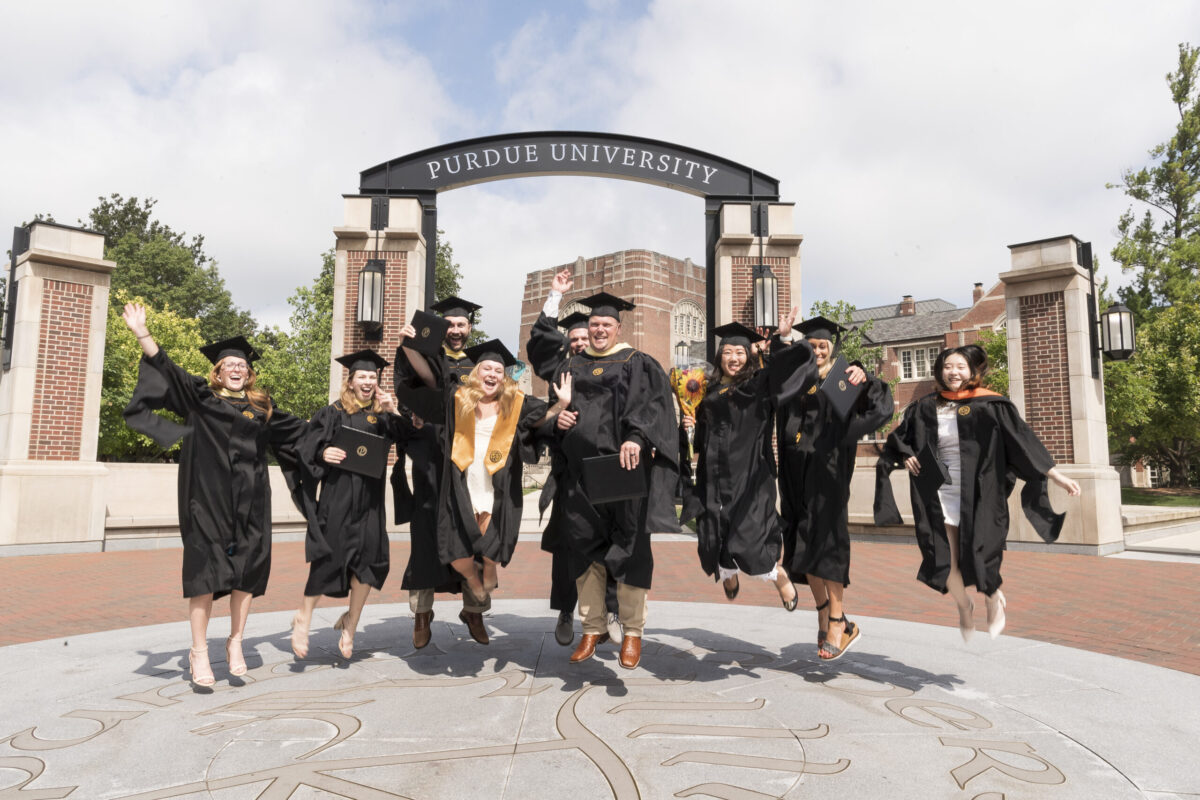
Without experienced parents to guide them through the process, the college journey can be overwhelming to first-generation students, from finding belonging to navigating resources to taking on a new financial burden.
To highlight the many accomplishments of first-generation students, faculty, staff and alumni, the Purdue University College of Health and Human Sciences (HHS) is participating in First-Generation College Celebration Week from Nov. 7-11 alongside the rest of the University to increase visibility, community and support for first-generation Boilermakers.
Being a first-generation student has given many HHS students, faculty and staff a distinct perspective toward the college experience, leading to many different paths to success.
Selvin Cordero
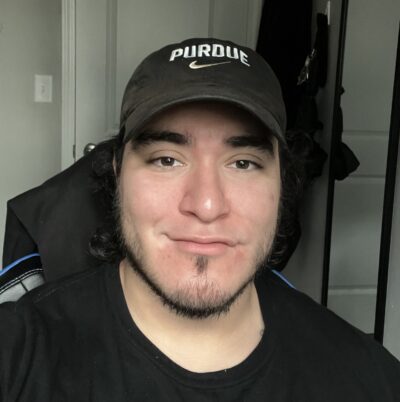
Selvin CorderoPhoto provided
For Selvin Cordero, a first-generation undergraduate student majoring in kinesiology, the journey through college hasn’t always been an easy one, with navigating a global pandemic and online courses. However, when he began his college experience at Ball State University and didn’t find his fit, he knew Purdue’s Department of Health and Kinesiology would help him reach his goal of becoming a strength and conditioning coach.
“In my mind, I always associated Purdue with success, and I wanted to be successful,” Cordero said.
Although he faced mental health struggles and academic consequences during the pandemic that forced him to take time away from the University, Cordero returned this semester on a strong path toward reaching that success, earning higher grades and feeling a newfound confidence and pride in himself.
“I intend to take this chance and go all the way,” Cordero said. “It’s nice believing in your own ability.”
Sandra Banales
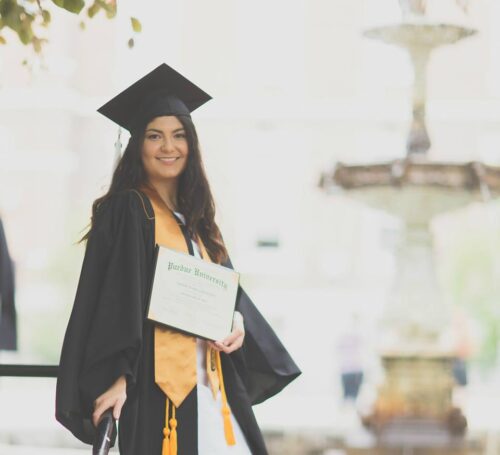
Sandra Banales poses on Purdue’s campus with her degree.Photo provided
Being a first-generation student enabled HHS recruitment specialist Sandra Banales to offer unique insights in her presentations to prospective students and their families about the college experience in HHS. She said she often finds herself recommending things she struggled with as a college student, such as joining student organizations.
“I think it just makes me push more of those resources and ways for students to get involved because if I could go back in time, that’s probably one of the biggest things I would change is not taking advantage of all the opportunities,” Banales said.
Banales noted that her passion for education and helping students came directly from her academic successes at Purdue, including getting accepted into Purdue’s highly competitive English literature graduate program. However, Banales said none of it would have been possible without the support of her family — particularly her mom, who signed Banales up for 21st Century Scholars to ease the financial stress of college.
“In a way, I was kind of living out my mom’s dreams,” Banales said. “My mom is one of the smartest people I know, but she just didn’t have the resources or the opportunities to go to school. I think because I know that she would have excelled in college had she had the opportunity, I wanted her to feel that it wasn’t a waste, that her daughters were living out her dream.”
Margo Monteith
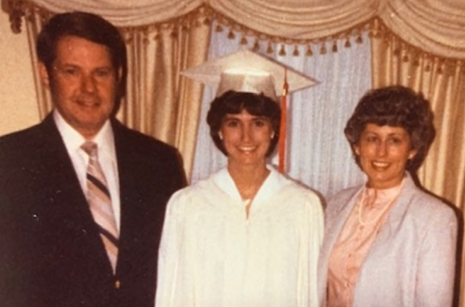
Margo Monteith takes a photo with her parents on the day of her college graduation.Photo provided
As a first-generation student, Margo Monteith, distinguished professor of psychological sciences and HHS associate dean for diversity, equity and inclusion, attended Moorhead State University — now Minnesota State University Moorhead — where she expanded her love of psychology and passion for knowledge.
“I loved learning during my undergraduate experience,” Monteith said. “I remember having more of the world revealed to me and exploring different ways of thinking — it was all so neat.”
Monteith noted that being a first-generation student often gives her a deeper understanding as a scientist of the measures to use in her social psychology research while also making her a more empathetic faculty member and mentor. Because of her experiences, Monteith is often able to share valuable advice with her students, such as not engaging in social comparisons with others and recognizing their strengths and accomplishments for what they are.
“Just being in the position of privilege or power, if that’s what you’ve known throughout your life, you don’t understand someone who might be coming from a different perspective,” Monteith said.
Liz Noland
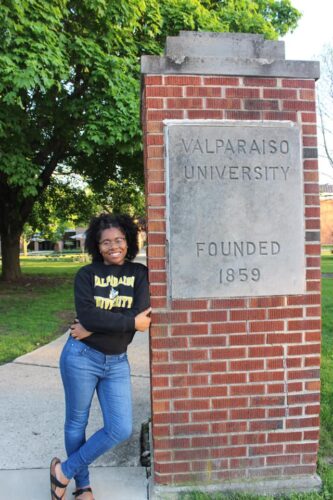
Then undergraduate Liz Noland snaps a photo on Valparaiso University’s campus.Photo provided
Liz Noland, PhD student in the Department of Psychological Sciences (PSY) who studies stereotyping and prejudice, said her determination to seek out resources and her willingness to accept support from those around her was instrumental in her undergraduate experience at Valparaiso University.
“I felt like sometimes people said you would be all on your own, but I am grateful for the support I received at my time at Valpo, especially from places like the Office of Multicultural Programs and Office of Residential Life,” Noland said. “There were always people who were reaching out to me.”
To help guide students with the same mentorship and support she valued as an undergraduate, Noland started a mentoring program within PSY to help underrepresented undergraduate students, including first-generation students, find a sense of belonging at Purdue by pairing them up with a graduate student mentor.
“Getting a PhD is still a daunting thing — nobody in my family has gotten a PhD,” Noland said. “But as a person of color and a queer person who studies marginalized groups, I think it’s important to have representation of identities in this field. I’ve had people I look up to in academia that share my identities, so I also want to inspire other underrepresented scholars if it’s possible, just to say, ‘We belong here — you can do it.’”